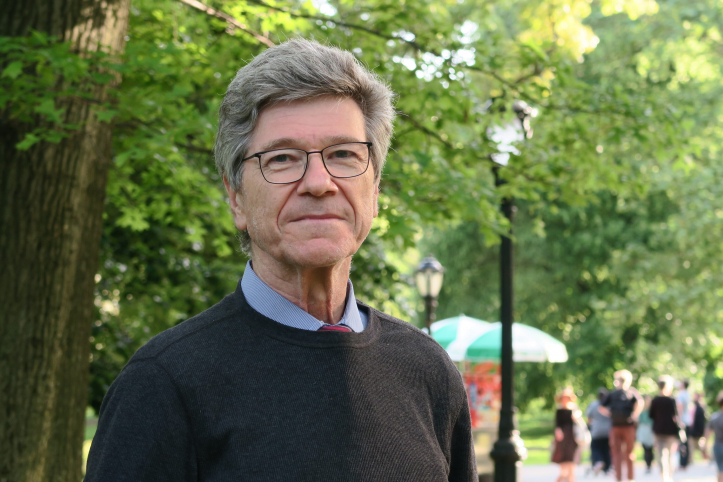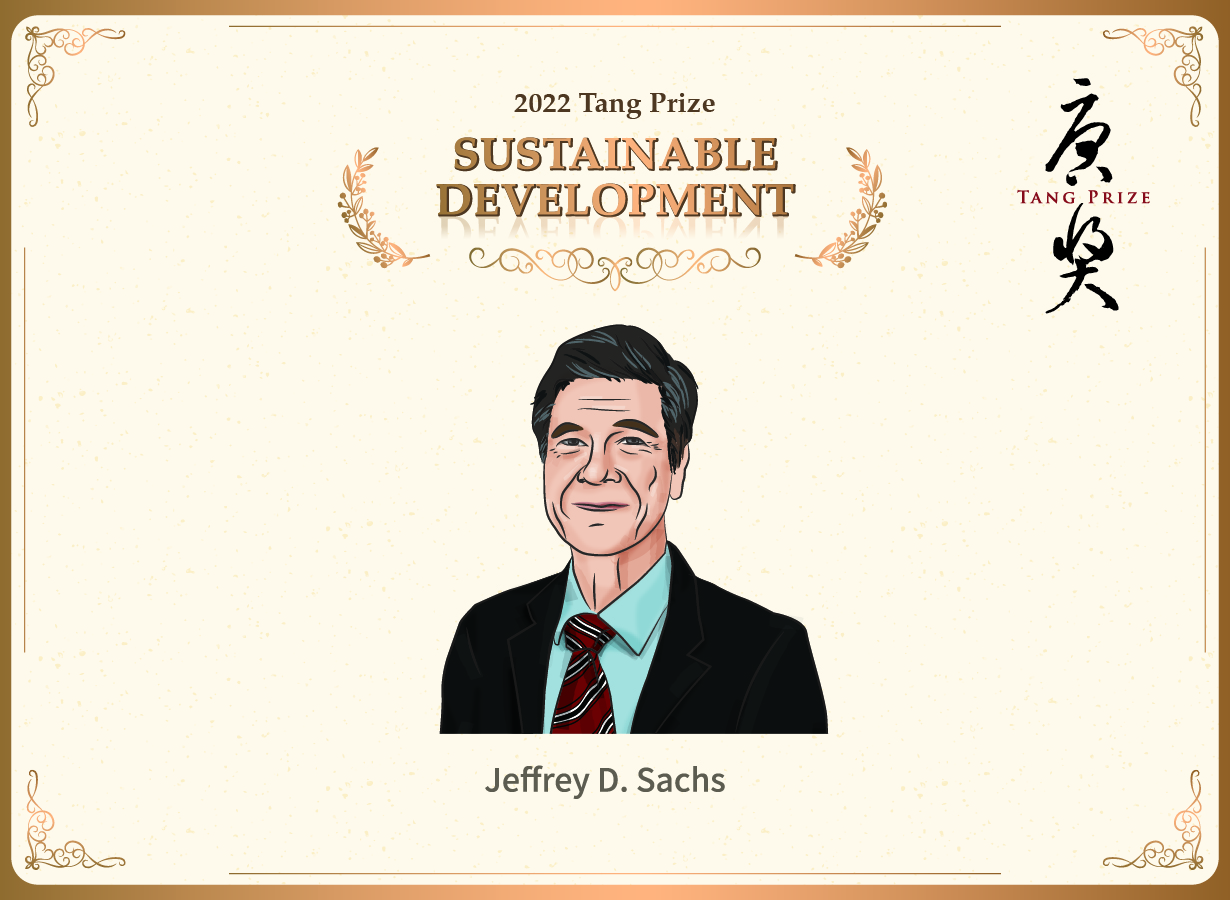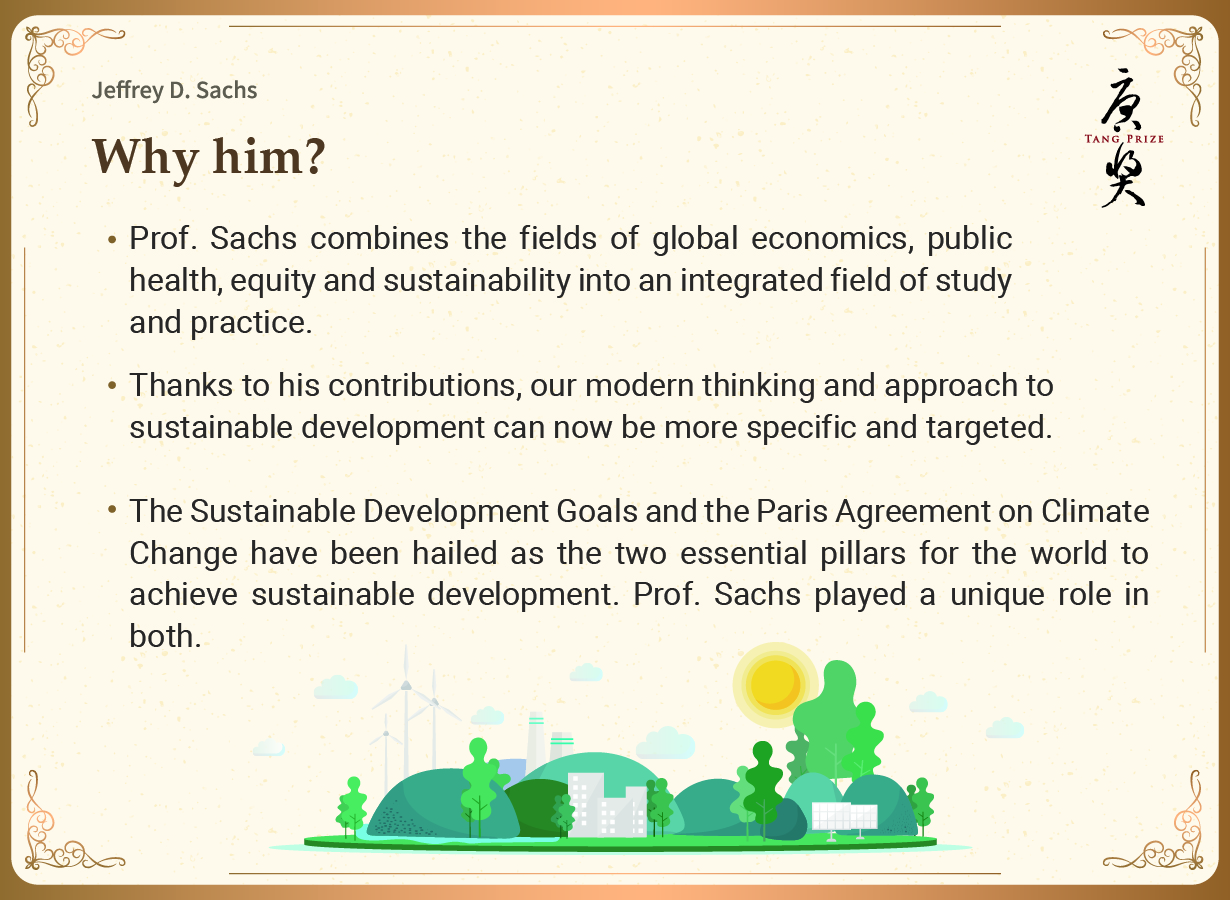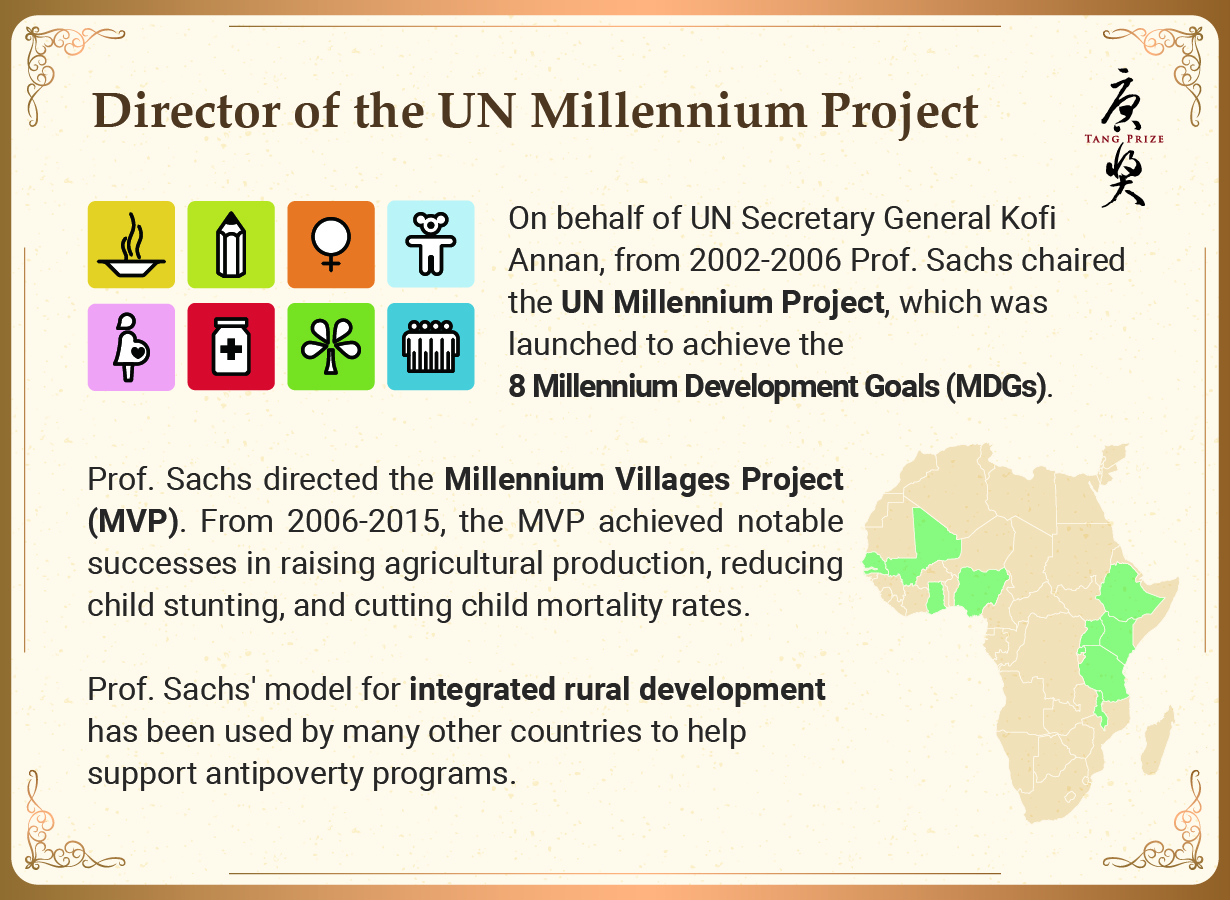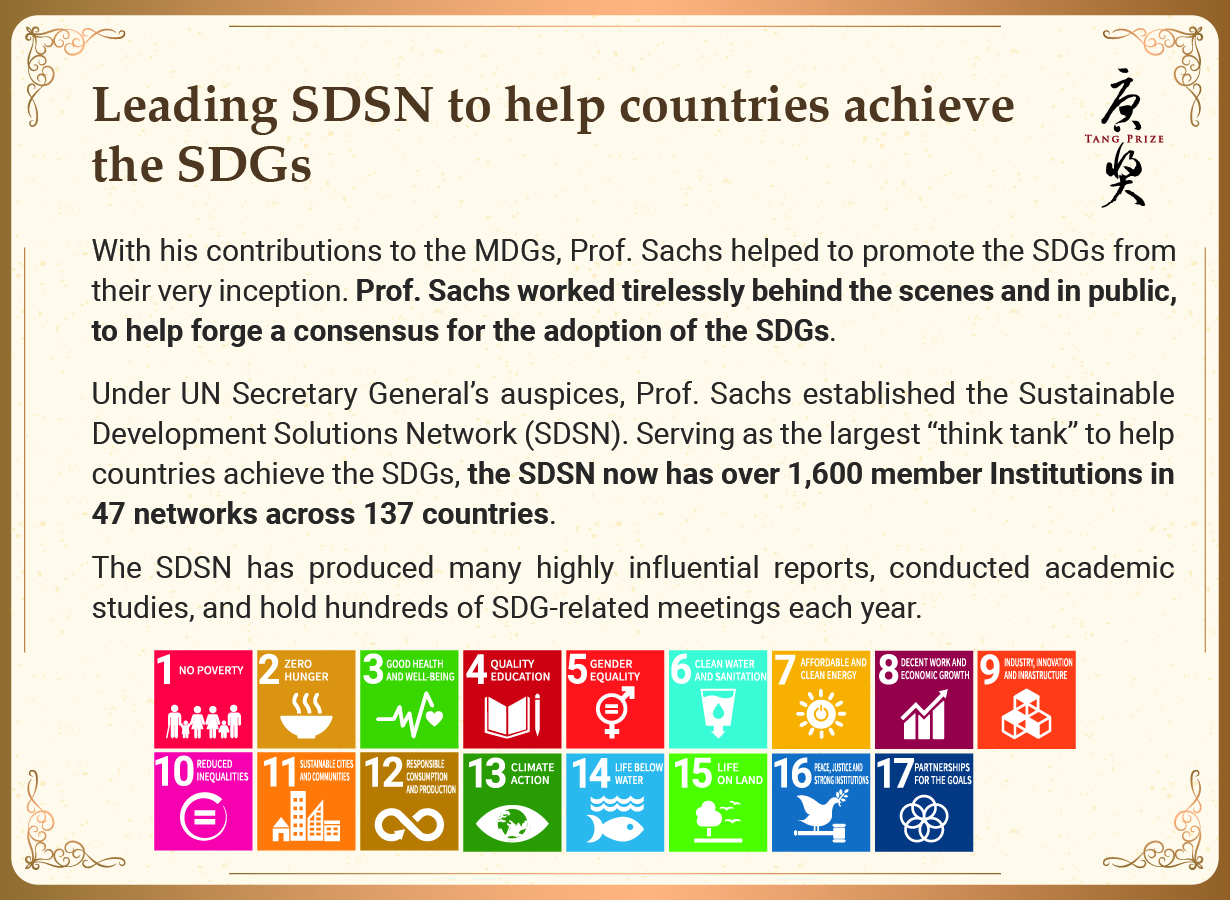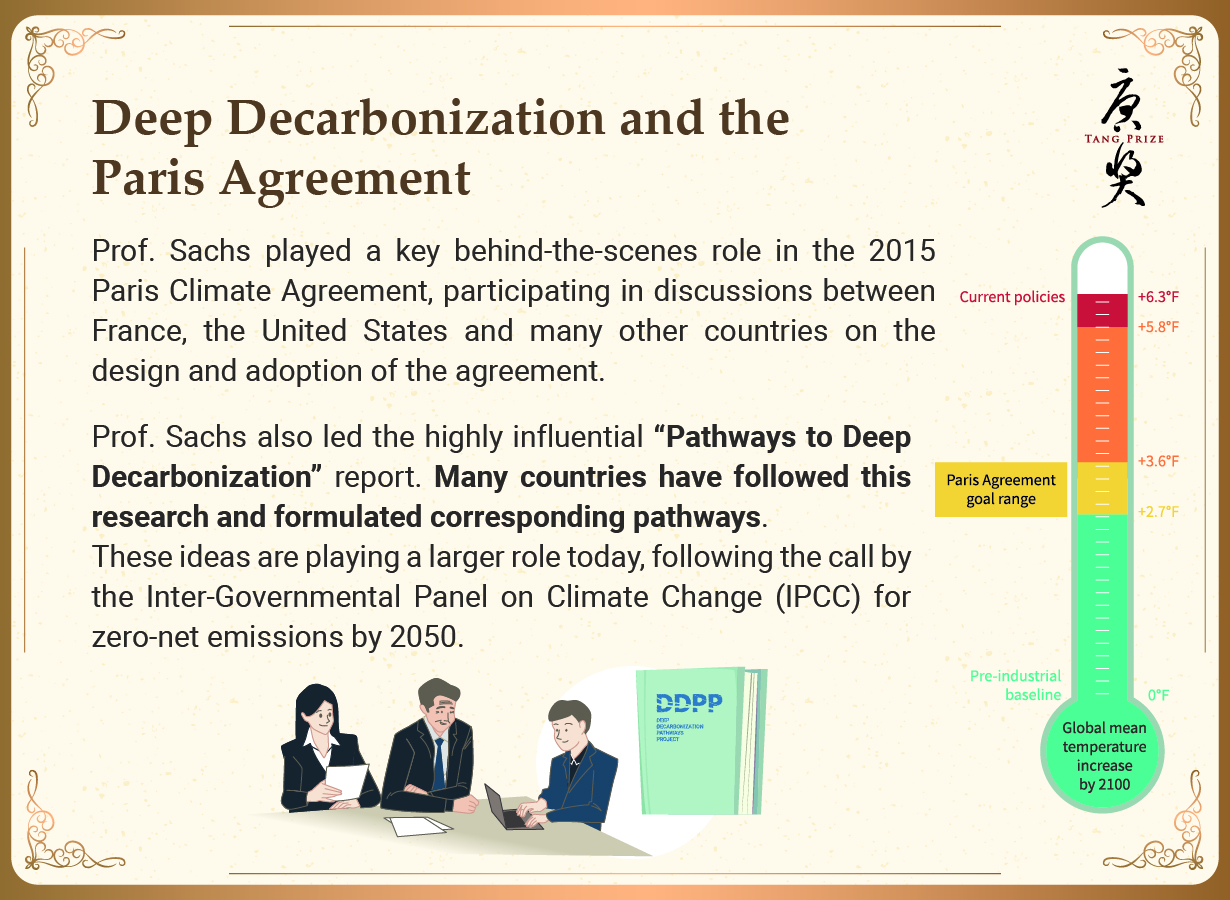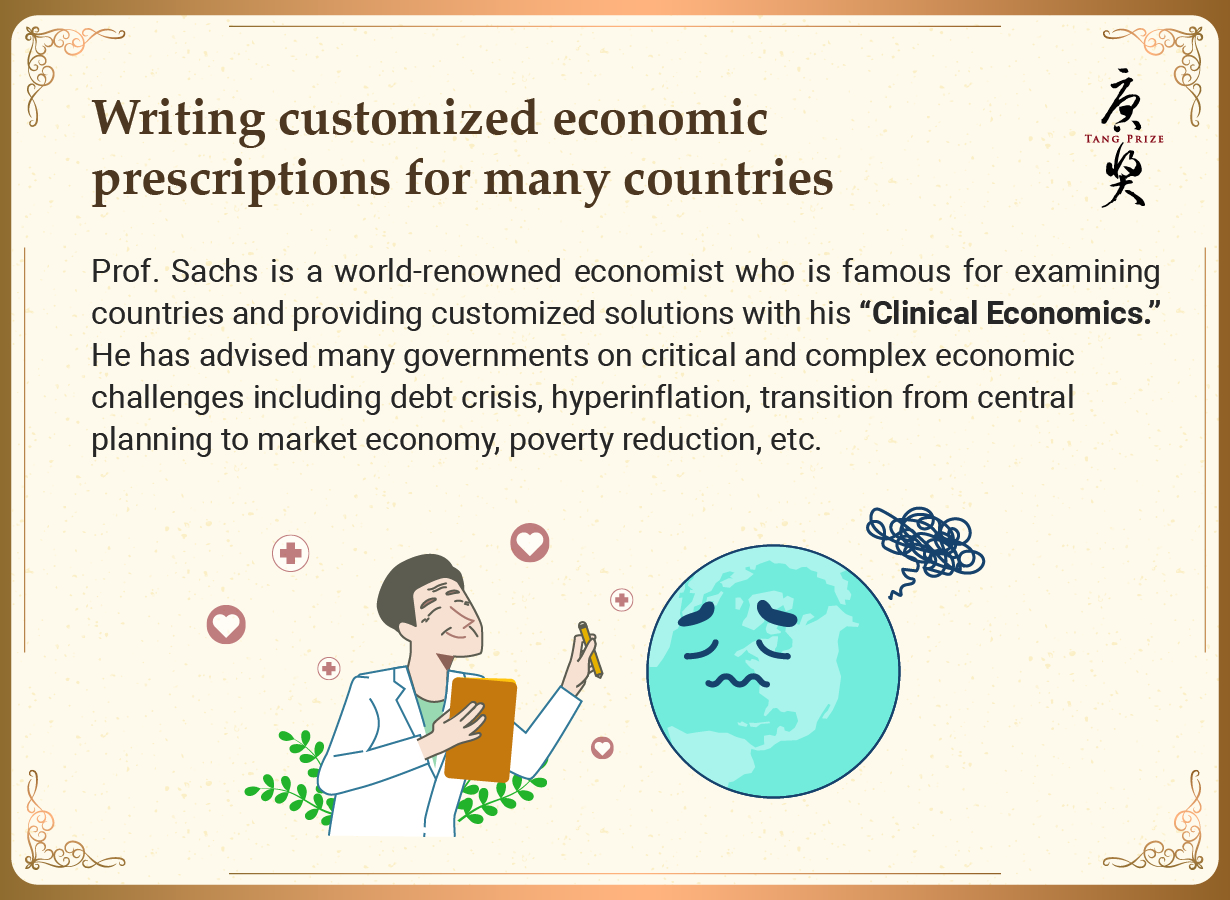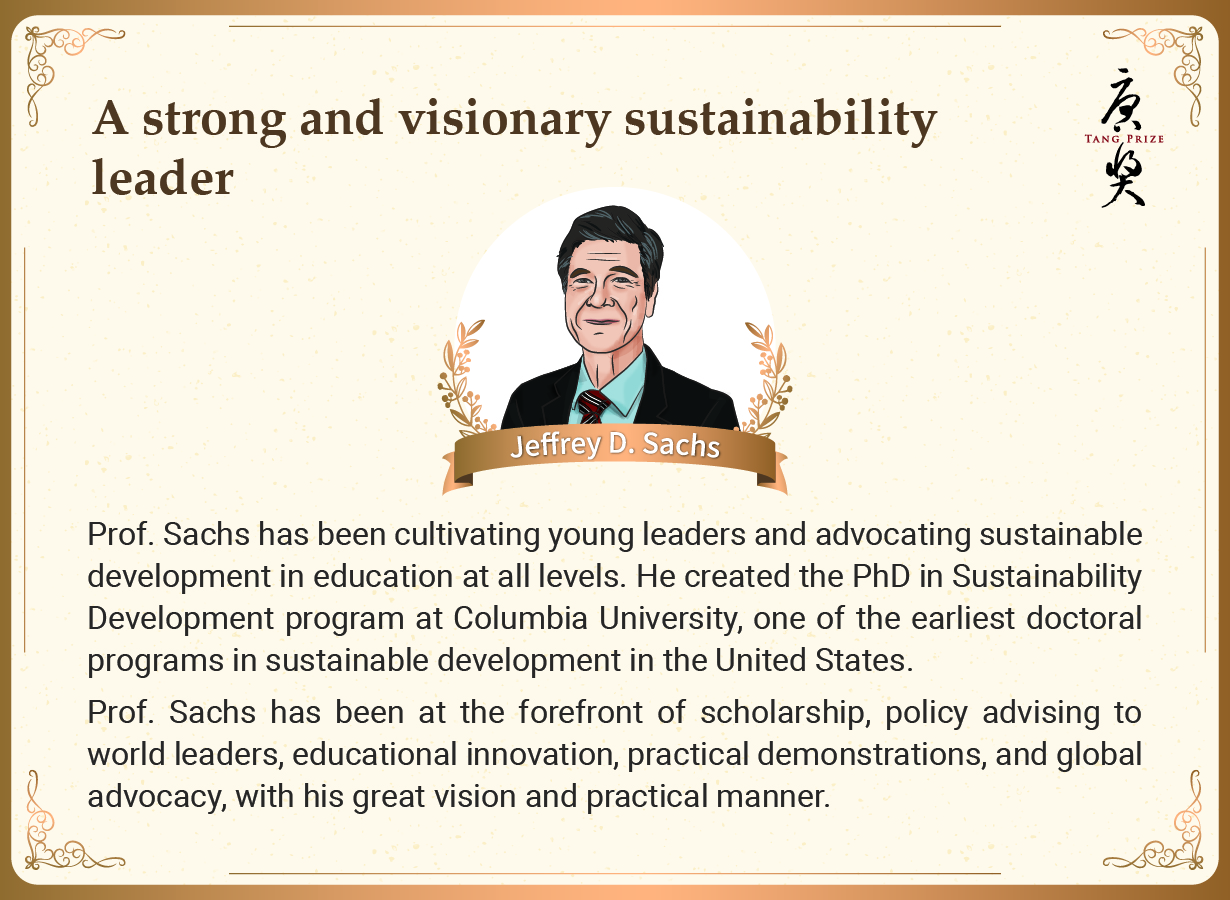Tang Prize in Sustainable Development 2022 is awarded to Prof. Jeffrey D. Sachs, for leading transdisciplinary sustainability science and creating the multilateral movement for its applications from village to nation and to the world.
Prof. Jeffrey Sachs is a world-renowned professor in economics. He has conducted ground-breaking research in many areas and is widely recognized for his bold and effective strategies to address complex and challenging issues such as debt crises, hyperinflations, transition from central planning to market economies, eradication of extreme poverty, and the battle against human-induced climate change.
Prof. Sachs is currently University Professor at Columbia University, the university’s highest academic rank, and Director of the Center for Sustainable Development. Prior to his arrival at Columbia University in July 2002, Prof. Sachs spent more than twenty years as a professor at Harvard University. He was Director of the Earth Institute of Columbia University from 2002 to 2016. Prof. Sachs is also the President of the UN Sustainable Development Solutions Network (SDSN) established in 2012 under the auspices of UN Secretary-General Ban Ki-moon.
Prof. Sachs pioneered a multidisciplinary approach to solving complex problems of sustainable development. His research has had great global influence. On behalf of UN Secretary-General Kofi Annan, from 2002-2006 Prof. Sachs chaired the UN Millennium Project, which was tasked with developing a concrete action plan to achieve the eight Millennium Development Goals (MDGs). He demonstrated how the MDGs could be achieved by using best practices in science, technology and public policy. The UN General Assembly adopted the key recommendations of the UN Millennium Project at a special session in September 2005. The recommendations for rural Africa were implemented as the Millennium Village Project (MVP) in ten African countries during 2006-2015, covering more than half a million people. Professor Sachs was the Director of MVP and during that ten-year span MVP achieved notable successes in raising agricultural production, reducing child stunting, and cutting child mortality rates. Its key concepts of integrated rural development to achieve the MDGs are now being used by many other countries to help support national antipoverty programs.
With his experience in implementing MDGs, Prof. Sachs helped to promote Sustainable Development Goals (SDGs) from their very inception when the idea was first broached at the “Rio+20” Conference in June 2012. The SDGs are the blueprint to achieve a better and more sustainable future for all. They address the global challenges we face, including poverty, inequality, climate change, environmental degradation, peace and justices. Prof. Sachs worked tirelessly behind the scenes and in public speeches at Rio+20 to help forge a consensus for the adoption of the SDGs. One of the key global inspirations for the SDGs was the progress made under the MDGs. Prof. Sachs’s work on the MDGs thereby made an important contribution in guiding nations to adopt the 17 UN SDGs as the successor to the MDGs.
Right after the governments agreed to adopt the concept of the SDGs, Prof. Sachs led a global consortium of universities and think tanks under UN Secretary-General’s auspices to establish the Sustainable Development Solutions Network (SDSN), serving as the largest global knowledge-based “think tank” to help countries to achieve the SDGs. The SDSN has produced many highly influential reports, conducted academic studies, offered online courses, and hold hundreds of SDG-related meetings around the world each year. The SDSN now has over 1,600 member Institutions in 47 networks across 137 countries.
Prof. Sachs's role in promoting the Paris Agreement has been similarly intensive. He has long helped to formulate core policy concepts on global climate control as a scholar and an academic leader. During the intensive phase of negotiating the Agreement, Prof. Sachs worked behind the scenes with the Government of France, the US Government, and many other governments to support the design and adoption of the Paris Agreement. The Sustainable Development Goals and the Paris Agreement on Climate Change have been hailed as the two essential pillars for the world to achieve sustainable development. It is significant to note that Professor Sachs played a unique role in both.
Prof. Sachs realized the crucial importance of a long-term policy framework for climate control. He led a highly influential global study on “Deep Decarbonization” that demonstrated how multi-decadal plans to 2050 can in fact be designed and implemented. Many countries have followed the idea and planned and designed their Deep Decarbonization Pathways. These ideas are playing a larger role today, following the call by the Inter-Governmental Panel on Climate Change (IPCC) for zero-net emissions by 2050. The IPCC report highlights the urgent need for long-term energy plans of the sort long advocated by Prof. Sachs.
Prof. Sachs has played a key role in promoting the happiness and well‐being of people. He co-founded the first‐of‐its‐kind World Happiness Report in 2012. Through the UN SDSN, he continues to publish the Report annually with enormous global interest and uptake. He serves as editor and writer for the annual editions of the report, with pioneering research and analysis of the conditions of happiness and wellbeing across the world.
As one of the world’s leading experts on economic development, global macroeconomics, and the fight against poverty, Prof. Sachs has advised many heads of state and governments on critical and complex economic challenges, including ending high inflations (Bolivia, Peru, Poland), negotiating debt relief (Bolivia, Brazil, Poland, and others), adopting market economic reforms (Poland, Russia), introducing new national currencies (Estonia, Slovenia), promoting regional development (China), and scaling up health systems (Ethiopia, Ghana, India, and many others). Prof. Sachs was awarded by several countries the highest honors for his broad-based support of their economic reforms.
Prof. Sachs has authored hundreds of scholarly articles and many books, including three New York Times bestsellers: The End of Poverty (2005), Common Wealth: Economics for a Crowded Planet (2008), and The Price of Civilization (2011). His syndicated newspaper column in Project Syndicate appears in more than 100 countries world-wide. He has received 38 honorary doctorates, most recently from Amrita University in Kerala, India; Macau University of Science and Technology; and the University of Siena, Italy.
Prof. Sachs has combined the fields of global economics, public health, equity and sustainability into an integrated field of study and practice. Our modern thinking and approach to sustainable development would not have reached the current level of integrated framing nor widespread understanding without the extraordinary accomplishments and contributions by Prof. Sachs. He is a strong and visionary leader and has been at the forefront of scholarship, policy advising to world leaders, educational innovation, practical demonstrations, and global advocacy.
